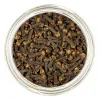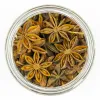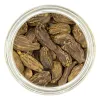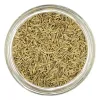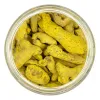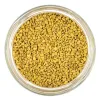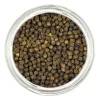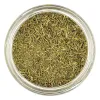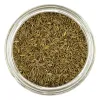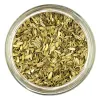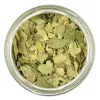History of Spices
The use of spices began a very long time ago, as soon as people learned how to cook food, and not just eat found vegetables and fruits. Once upon a time, fragrant herbs or plant fruits, accidentally or specially added to the broth, changed the taste of cooked food, improving its perception. And since then began the history of spices, which lasts for many thousands of years. Spices continue to be used to this day, and it is impossible to imagine any, even the simplest dish, in which certain spices are not added.
Spices and Their Origin
The bulk of spices originate from regions where plants grow that are distinguished by a high content of essential oils in leaves, flowers or fruits - usually these are regions with a tropical and subtropical climate. In addition, the use of spices directly depended on the development of civilizations in a particular region of the world - the higher the level of civilization, the higher the need for products such as spices. So, a lot of spices came from those regions where India, China and the Mediterranean countries are currently located. With the development of travel, spices began to fall into those countries where they were not only not used until that time - some spices were not even suspected. For example, spices that came to Europe from India and other countries were highly valued, thanks to which they stimulated travel and trade, despite all the associated dangers. Some spices have been found on tropical islands, thanks to which the range of spices has expanded significantly. The discovery of America also made a great contribution to the expansion of the range of spices - an example is the many varieties of hot peppers, almost all originating from America. In addition, some spices have been found in the Caribbean. In almost all parts of the world, both local and imported spices were used in cooking and medicine, and at present there are no problems at all with the purchase of this or that spice - now you can buy almost any spice from any region of the globe, simply by contacting any Internet-store specializing in this kind of goods.
Spices in Cooking
Spices contain a large amount of useful substances - minerals, vitamins and much more. When using spices in cooking, due to the flavoring substances and essential oils contained in them, it allows to improve the quality of products, to make products more tender. Spices stimulate appetite, increasing the activity of the organs of taste, smell and digestion, as well as increase the digestibility of food nutrients, having a positive effect on metabolism. Spices can give a dish or product a completely new flavor, but you must always remember that the taste of the finished dish does not depend on how many spices and spices are added there, but on their correct use, since an overdose of spices can completely spoil the finished dish. In cooking, not only individual spices are used, but also mixtures of them, called seasonings. Some seasonings are dry mixtures of powders of various spices, and some may be liquid or paste-like, sometimes referred to as sauces. Many hot sauces are essentially a mixture of spices, and are a seasoning for food.
Spices in Medicine, Their Benefits and Harms
But spices have other useful properties - most spices are excellent preservatives with pronounced bactericidal properties. Almost all spices have medicinal properties and are used in traditional and folk medicine. Essential oils, which are rich in spices, have a positive effect on the activity of the cardiovascular and nervous system, have a beneficial effect on metabolism, and have bactericidal and antiseptic properties. But, like any other medicine, spices, when used correctly, benefit human health, and if used incorrectly, they can cause significant harm to the body. Therefore, it is important to know how and in what quantities it is necessary to use spices in cooking and medicine.
In What Form is It Better to Buy Spices?
Naturally, it is better to buy whole spices - this way they retain their taste, aroma and other useful properties for a longer time, for which we buy spices. In addition, in this case there is a guarantee that they will sell you exactly the spice that you want to buy, and not ground spice with impurities of unknown origin. Whole spices do not contain flavor enhancers and other additives, which is also important for those who care about their health. In most cases, ground spices are used in recipes, but it is better to grind them immediately before cooking, and store them as a whole. In some cases, the recipe includes a whole spice - in this case, it cannot be replaced with ground spices, which once again speaks in favor of buying whole spices. But one should not forget about ground spices, if only because they are easier to use in cooking - in this case, you can buy ground spices, ground at the factory.
